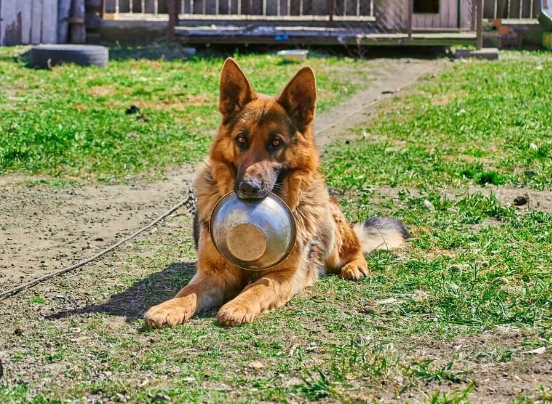The Ultimate German Shepherd Feeding Guide: What You Need to Know
Feeding a German Shepherd can seem like a daunting task, but with the right information and guidance, it can be a simple and stress-free process. Here are some key points to keep in mind when feeding your German Shepherd:
1. Choose the Right Food
It’s important to choose a high-quality dog food that is specifically formulated for large breeds like German Shepherds. Look for a food that lists meat as the first ingredient and is free from artificial colors, flavors, and preservatives.
2. Follow a Feeding Schedule
German Shepherds thrive on routine, so it’s important to establish a consistent feeding schedule. Most adult German Shepherds do well with two meals per day, but puppies may need to be fed more frequently.
3. Monitor Portion Sizes
It’s easy for German Shepherds to overeat, so be sure to monitor their portion sizes carefully. Follow the recommended feeding guidelines on the food packaging, and adjust as needed based on your dog’s activity level and weight.
4. Provide Plenty of Water
Always make sure your German Shepherd has access to fresh, clean water throughout the day. Hydration is key to their overall health and well-being.
5. Avoid Table Scraps
While it may be tempting to share your food with your German Shepherd, it’s best to avoid giving them table scraps. Human food can be high in fat, salt, and other ingredients that can be harmful to dogs.
6. Consider Supplements
Depending on your dog’s individual needs, you may want to consider adding supplements to their diet. Talk to your veterinarian about options like joint supplements, probiotics, or omega-3 fatty acids.
7. Watch for Allergies
Some German Shepherds may have food allergies or sensitivities. Watch for symptoms like itching, ear infections, or upset stomach, and consult with your vet if you suspect a problem.
By following these tips and guidelines, you can ensure that your German Shepherd is getting the nutrition they need to thrive. Remember to consult with your veterinarian if you have any questions or concerns about your dog’s diet.

